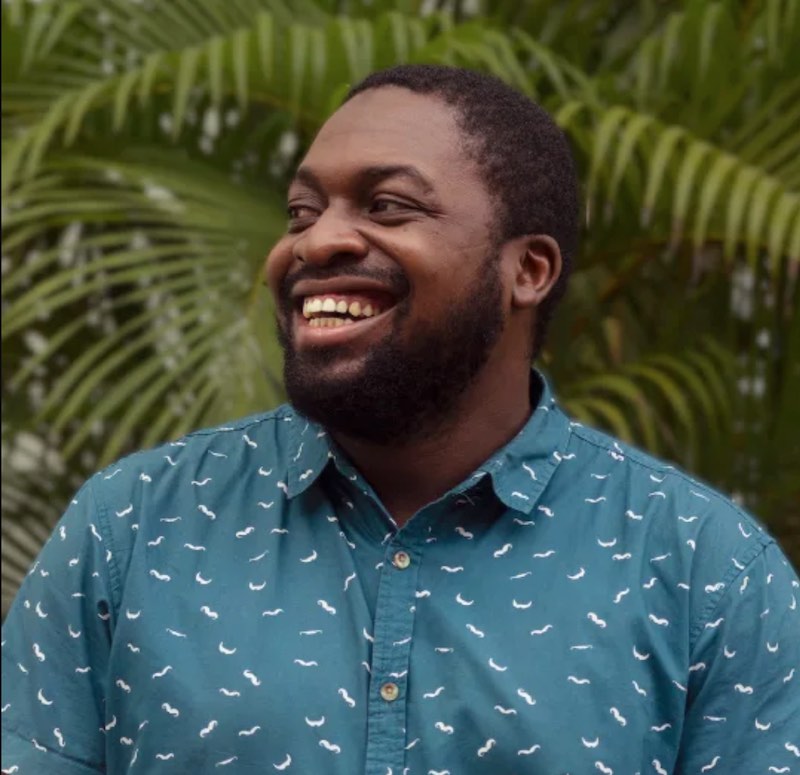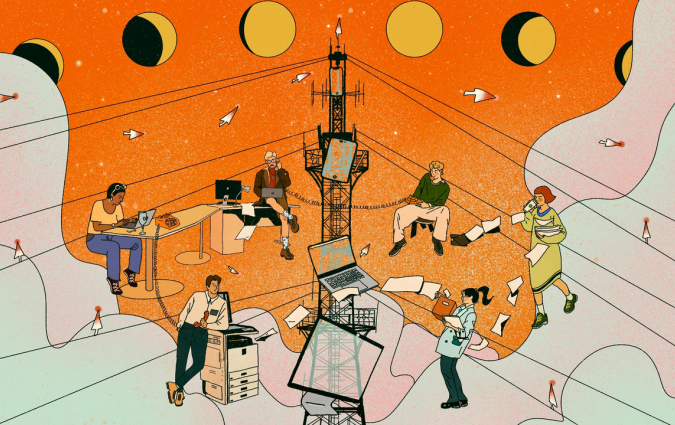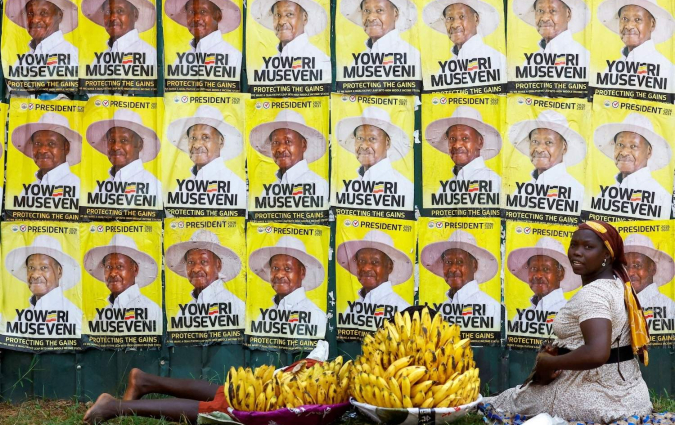How a group of Nigerian journalists are digitising thousands of old newspapers

Nigerian newspapers digitised by the members of the project. | Archivi.ng
An ambitious project is underway in Nigeria to archive 18,627 days of newspapers – one newspaper for each day from 1 January 1960 to 31 December 2010. The Tracking archvi.ng project aims to capture not only a snapshot of Nigeria’s political, social and cultural history, but also to create an open resource for the public, researchers and journalists. In this vein, the group of volunteers behind the archive have opened their product roadmap, financial goals and process online, as part of the “public library spirit”.
“We didn’t start this project just because we want archives to exist. It’s about the things we know will happen when you have access to over 500,000 stories across five decades of Nigerian history,” writes Fu’ad Lawal, one of the project’s organisers, on the team’s Medium account. Lawal started the project with a group of friends as a “weekend hobby” to see how many newspapers from this period – with titles including The New Nigerian, National Concord and The Nigerian Tribune – they could find in libraries and archives across the country.
Archiving work began in December 2020 and plans include an open, digital platform to access the newspapers if the initiative can secure the necessary access to funding, materials, and resources. I spoke to Lawal to learn more about the project.

Q. Where did the Tracking archivi.ng project come from?
A. In Nigeria, we are living without a lot of context. Context is built on existing knowledge and, naturally, the knowledge has to be accessible for context to be built.
The internet started to pick up in Nigeria in the late 2000s. Digital media didn’t make a proper appearance until the 2010s. Until then it wasn’t normal for people to publish online. A lot of information people have documented about Nigeria in the past is now just rotting away in libraries and archives. Every state has a federal library which is supposed to have an archive, but these archives are not digitised. If I need to find a story from 1953 in Nigeria, I had better look at the British Library than at any of the national libraries in my country.
Q. Why is such an archive important?
A. Newspapers, more than any other medium, show up every day and document everything, from the mundane to the magnificent. That means you suddenly have things as basic as recipes from a certain time recorded.
A big reason I have a New York Times subscription is searching for old stories. I want to engage with how the world was thinking in 1976 about Fela [the Lagos compound of renowned musician and Afrobeat pioneer, Fela Anikupalo Kuti, attacked by soldiers who beat and jailed him]. A reporter for the New York Times will not report the story the way a reporter in Lagos would, the way someone at Fela’s house would. There was definitely a reporter at Fela’s house the day the soldiers came but we can’t find that story in Nigeria because we don’t have these reports in digital archives.
When we have questions now the first place you go to is Google. It's fair to say that if the answer is not on Google, it doesn't exist. Does that mean that only very little of Nigeria exists before the internet? So the question for me is what effect it would have if we, as a people, as a country, as a cultural society, suddenly had access to all this information. We would suddenly approach contemporary issues and stories with more context and stronger evidence.
Q. Why is there no existing archive?
A. People put a lack of a digital archive for these newspapers down to a couple of factors: mismanagement and the natural, teething problems of a young country. But we have an audience for this information [which isn’t being served].
Almost every Nigerian library has old Nigerian newspapers. An aspect of the constitution that we inherited from the British means English-language newspapers are required to send a copy to libraries. Some have been lost, some are in the most deplorable conditions, but of all the archives I have been to, I never found a librarian that was not invested in their job. A lot of the problems are high-level stuff that goes beyond them.
Q. How did you settle on 18,000 newspapers?
A. Nigeria became independent in 1960 and my working theory is that by the late 2000s Nigerian newspapers were beginning to come online. This period will show how we have evolved since we became a country. The archives from before 1960 are just sparingly available. They're mostly falling apart and so hard to find.
Our primary objective is to focus on one newspaper a day because it gives us a window into that world. What we get from two or three newspapers is perspective, which may be something we look to archive in the future. We do have an access problem: libraries are government entities and only engage with registered entities. We had been trying to set ourselves up as a non-profit to overcome this, but there’s a blocker because of the pandemic and because it generally takes longer to register non-profits in Nigeria.
Out of this frustration, I borrowed a month of newspapers and we are currently archiving these papers. The month was picked at random to avoid any sentimental value attached to certain months or dates when we know big events happened. It’s September 1991. This will be useful to give people a sense of exactly what we're doing and has helped us work out some parts of the process.
Q. You’re dealing with fragile documents, technical processes and access issues. What does it involve practically?
A. There's an assumption in Nigeria that we do not keep anything, that you can't find anything from our past. But we searched and found newspapers from every day in this period across three libraries [the National Libraries in Sokoto, Abuja and Lagos] just before the pandemic started. We know where they all are.
Once you’ve got access, the next thing you need to do is digitise those papers. How? You take a photo with a camera that captures in hi-res, full-page dimensions [A2] and fast. There are large-format scanners designed for the purpose, but they cost as much as $17,000. I had no clue they were so expensive. Our phones are hi-res enough to capture as much detail as possible.
Next is the OCR [Optical Character Recognition] phase. We are still figuring out the technology that is used. I know the New York Times uses an AI tool – tesseract OCR – but I don’t imagine they’ll just give it to us. We're going to test what happens when we strip out the text from the articles and put them onto a CMS like WordPress.
I am not a qualified, trained archivist. Everything I know about archiving is from calling people up and being honest about what we can do and what we can't. Because of my experience in digital media, I have a good grasp of how the technology would work but it is just the grunt work that I'm having to learn and learn and learn.
Q. How do you hope the archive will be used?
A. My journalistic muscle means there is a selfish interest in this project. I have journalist friends constantly struggling to reference things. What about journalism will we unlock if people have access to this information? Journalists are the people who will validate these archives more than anybody else. This archive could mean context and not writing in a vacuum.
For example, there's a running joke that Buhari [Muhammadu Buhari, current President of Nigeria] kept his notes from the 1980s when he led Nigeria as a military dictator and just reopened them and his grievances and continued from where he had left off [when he returned to power in 2015]. There is journalistic rigour required to make that story visible and correct.
There are videos to be made and stories – even movies – to be written using this archive. Right now, making a historical movie based in Nigeria takes too much effort to find what those days looked like. With an archive, you can feel the pulse of those times.
Q. Have you made any surprising discoveries from the newspapers from 1991 that you are currently archiving?
A. There was a recent ‘New York Post’ article about how afrobeat had gone international because of Burna Boy, but I’d just been reading articles from the 1980s about Fela touring London. This is part of the problem: whoever wrote that article, did their research on Google and didn’t find anything.
There was a lot of talk ahead of the famous 1993 election and there was something about state creation in every paper for the entire month. There are stories about one of Nigeria's most iconic first ladies, Maryam Babangida. She had the reputation of being the most elegant first lady and people loved her because of her charitable work. There was also a story about how Lagos is so lonely, which is still relevant today.
There are small points of interest too like the headline of one article: “Would you be able to get an excuse from work if you told your boss you went to see The Doctor?” The Doctor in this context is an armed robber from the 1970s and this article is about people going to watch his execution on one of the beaches in Nigeria that used to be reserved for this. In 1991, there would be TV ads for executions. People would call in sick, cancel school, take their kids and go to the beach to watch.
Q. What are the next steps for the project?
A. We have launched a crowdfunding campaign and set a target of $100,000-150,000. We’re releasing timelines that from whenever we start this full-time, that in one year, we'll be able to archive at least 15,000 days. We’re building a system so that, when the time comes, we can create a small army of people to just scan non-stop.
Fundamentally, I need people to open their purses, despite inflation in Nigeria. I also need people to open their mouths and tell everybody. We will not be waiting for people to use it. We will be looking for ways to get people to use it, whether that’s figuring out small widgets to embed in articles or other tools that I know I have needed in the past while working in journalism. I need people to use it when it’s live and make the most of it because that's what makes it worth it.
Laura Oliver is a freelance journalist based in the UK. She has written for the 'Guardian', BBC, 'The Week' and more. She is a visiting lecturer in online journalism at City, University of London, and works as an audience strategy consultant for newsrooms. You can find her work here.




